The biggest entertainment stories
Get our big stories about Hollywood, film, television, music, arts, culture and more right in your inbox as soon as they publish.
You may occasionally receive promotional content from the Los Angeles Times.
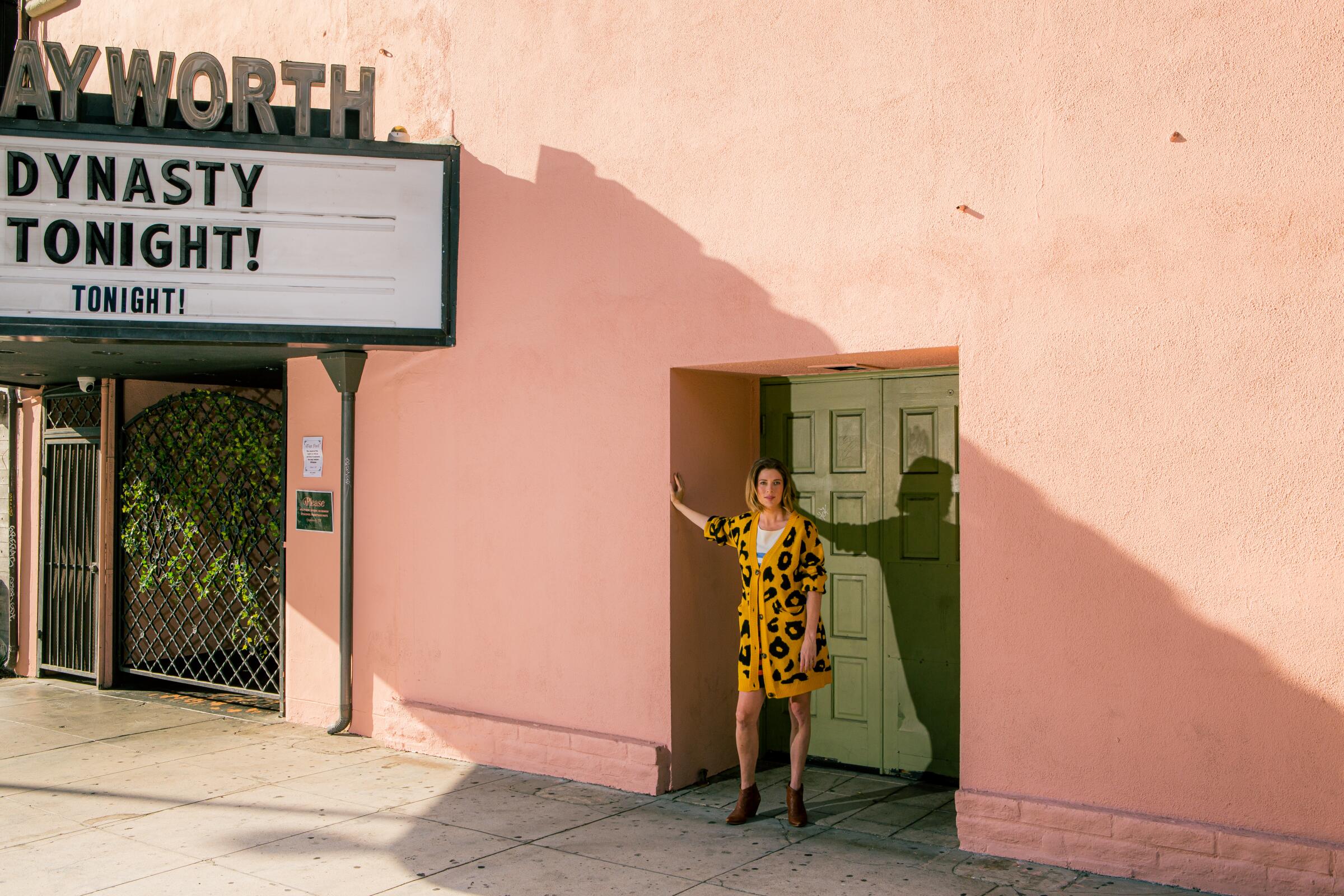
One unexpected effect the COVID-19 pandemic had on the comedy industry is the boom of diverse, inclusive and quality shows that fill up the calendar of L.A.’s comedy scene. That’s thanks in large part to the women who run the shows behind the scenes. Female bookers and producers increasingly moved into positions of greater power in recent years and play a vital role in the growth of L.A. stand-up comedy. Some have kept venues running on fumes; some have even started their own outlets amid ever-darkening times. Looking back over the last two and a half years, 10 women who book comedy shows across L.A. — from the long-established stages like the Improv and the Comedy Store to newer spots like the Crow and the Hollywood Comedy — discuss how far the scene has come and where they see it evolving going forward.
How long have you worked in comedy and what do you consider your duties to be?
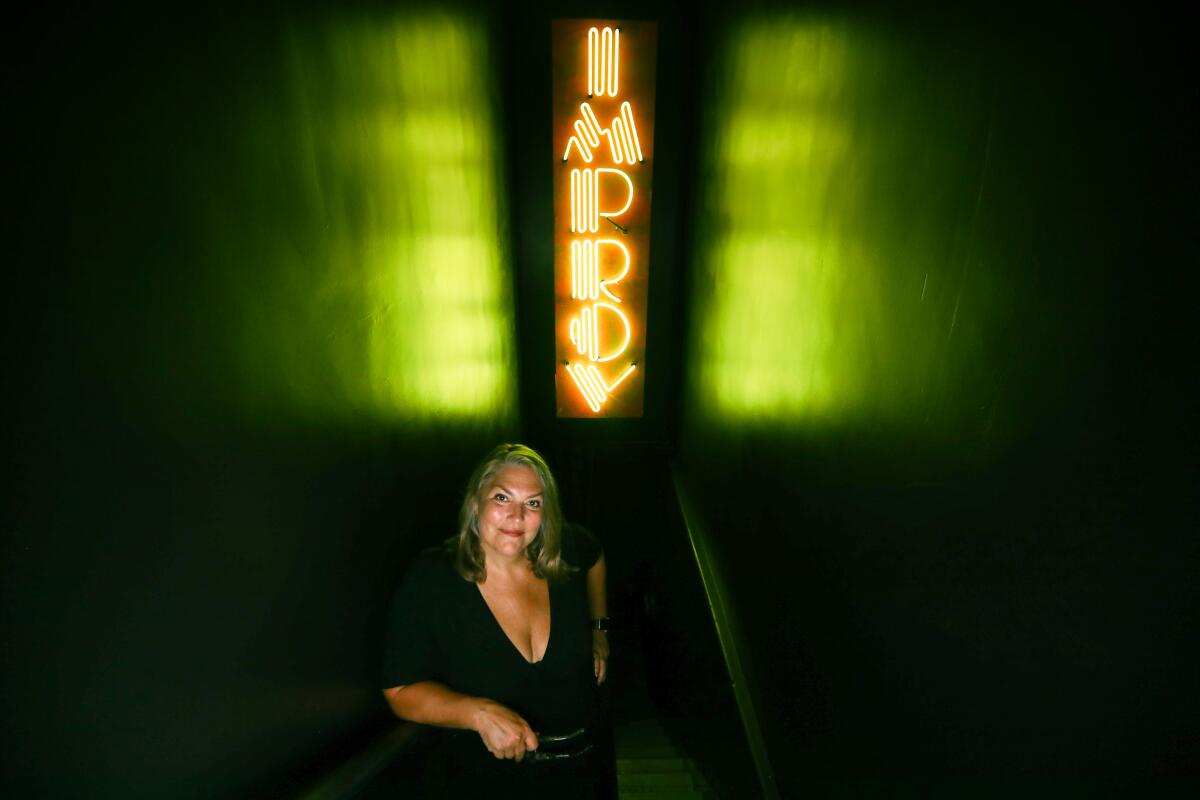
For the record:
11:13 a.m. Aug. 4, 2022A previous version of this story had a photo caption that said the comedy show UnCabaret had been hosted at El Cid since the 1990s. While the show has been around since the ‘90s, El Cid is just its latest venue.
Erin von Schonfeldt, executive vice president of programming at the Improv: 31 years with the Improv; 27 years booking. I oversee the programming for 15 Improvs across the country and a fleet of seven ships for Norwegian Cruise Lines. Basically I identify, source, schedule talent, negotiate deals with agents and try my best to maintain my sanity.
Beth Lapides, producer, host and “creatrix” of UnCabaret since 1990: Inspiration, decision-making, vibe creation, question-asking, discovering, encouraging, educating, changing, laughing. Creating the work that sets the tone onstage. Booking. Content creation. Posting. Finding other people to do some of it. Staying in a good mind-set while I do it all.
We need laughter now more than ever. Here’s an inside look at our thriving local stand-up scene.
Nicole Blaine, owner, founder and comedy curator of the Crow: I opened up the Crow on June 1, 2022. I have been a theater producer since 2000; indie TV and movie writer and producer since 2007; live comedy producer and booker since 2013; and comedy festival executive producer since 2014. Other than making sure that everyone who steps foot in the Crow feels happy, comfortable and safe, I oversee all things, including booking our main house shows, finding hardworking and successful producers that have shows that match our club’s mission statement, marketing and advertising, backend administration, corporate booking, teaching comedy classes to adults, teens and kids, watering the plants, and mopping the floors. It’s glamorous.
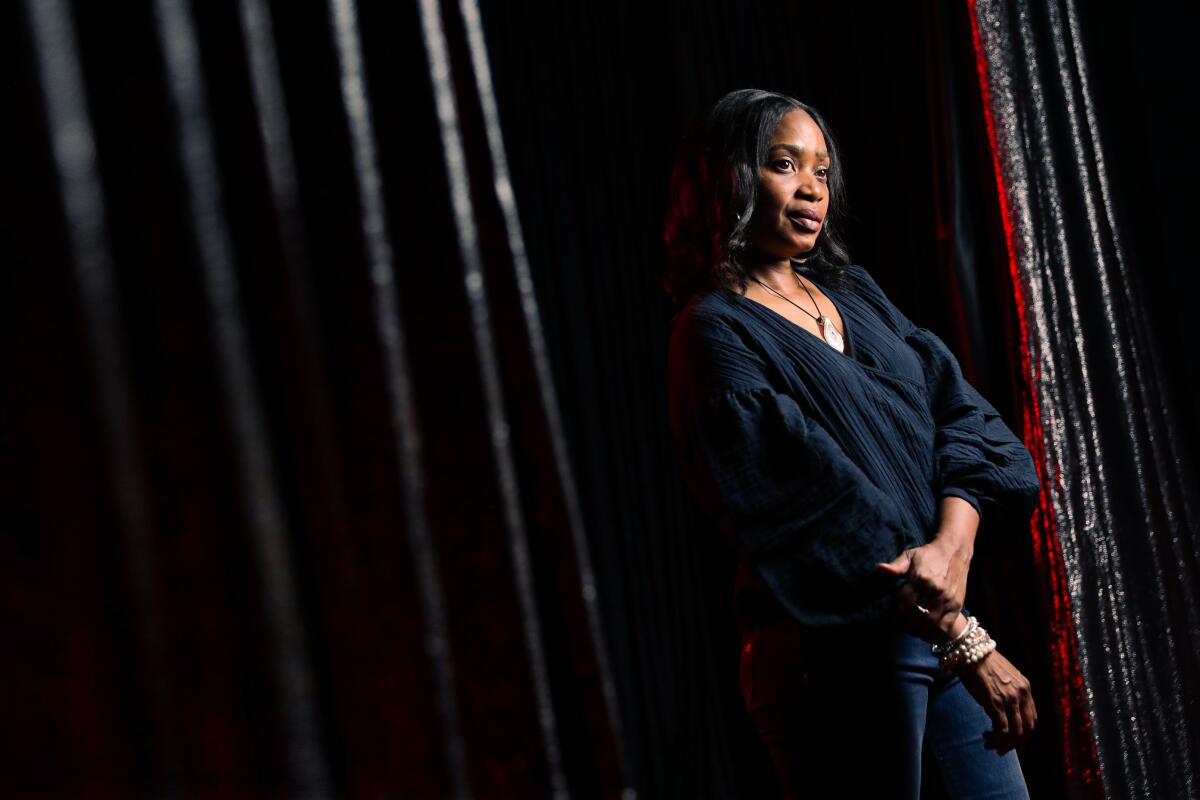
Nichelle Murdock, executive producer/talent curator for Crack’Em Up Thursdays: I’ve been producing and working with comedic talent since 2002. I got my start in comedy while working as a producer on “ComicView,” a long-running stand-up comedy show on BET Networks. I shine the light on some of the country’s and the world’s best rising comedy stars. I am the talent booker, showrunner/producer and promoter for Crack’Em Up Thursdays at the Comedy Store. This show was created in 2003 to provide a safe space for the professional comedian to work out their new material. I also had a three-month run with the Laugh Factory as the talent booker/producer, managing the bookings for the Hollywood and Long Beach locations.
Sam Varela, talent booker and producer/promoter at Naked Comedy Productions: I have been running live comedy shows, podcasts and more for over 14 years in Los Angeles and New York and festivals around the country. I feel it is my role to hold a space in this comedy world where I can protect performers and audiences from the negative elements of this business. A space where sexual assaulters are not welcomed on the stage, where the venue space is accessible for all body types and mobilities, and where the vibes will be as good as possible despite whatever is happening in the world.
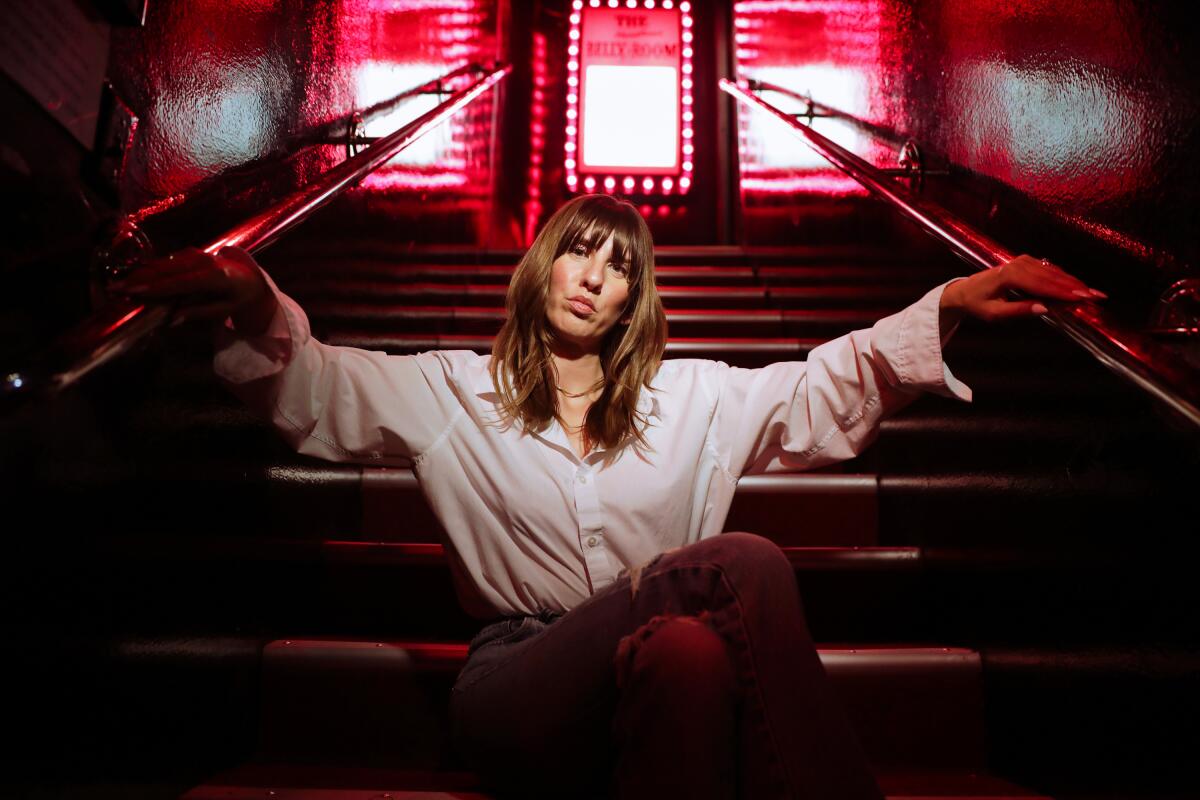
Emilie Laford, director of talent at the Comedy Store: I’ve had this position for over a year. I’ve been working at the Store for about seven years, working in comedy here in L.A. for 14-ish years. I’m responsible for creating, curating and cultivating a comedy community inside the walls of the building. To watch, develop and challenge every comic who gets up on our stages. I do all the lineups with our impressive list of amazing paid regulars, scout and develop comics to be paid regulars, deal with all talent on any and all talent-related issues within the club.
Katherine Swope, producer of Good Heroin: Nine years of general duties for a weekly show include booking talent, acting as the main point of contact for venue, talent and auxiliary staff (A/V tech, photographer, etc.), audience management, promotion and endless amounts of troubleshooting.
Vanessa Ragland, co-owner and co-artistic director at Dynasty Typewriter: I’ve been doing this with Jamie Flam since we opened. (It’ll be five years in November; get the big cake ready!) The role is a little all over the place, in a good way: talking to people who want to bring shows to Dynasty, helping curate the calendar, writing our correspondences, keeping an eye out for exciting new voices, joyfully playing in the space and creating worlds and working to ensure everyone on our team is happy to be there and a beacon of the lovely things we hope Dynasty represents.
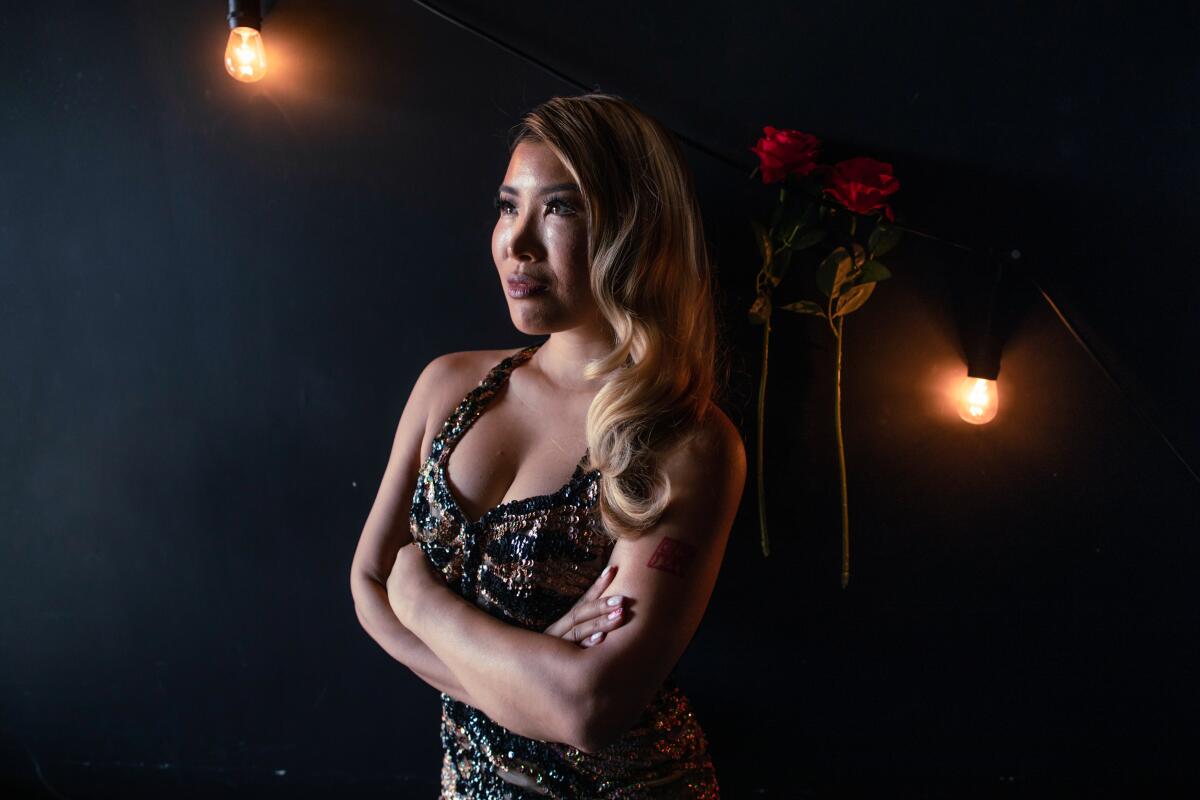
Jiaoying Summers, comedian, entrepreneur, actress, activist, mom and owner of the Hollywood Comedy: Keeping it all moving. Booking the Hollywood Comedy, booking my special nights at the Laugh Factory, Improv, etc. Making sure my team is organized. And communication is key.
Kate Banford, executive and producing artistic director at the Elysian: I started doing comedy in 2009, producing shows in 2012. I’ve had this role since 2021. I book shows at the theater; we’re pushing day-by-day more toward a space that produces and develops shows. I spearheaded the launching of the theater and now oversee that everything is building and growing and supporting the shows. It ebbs and flows. I respond to a zillion emails. I ignore a zillion other emails.
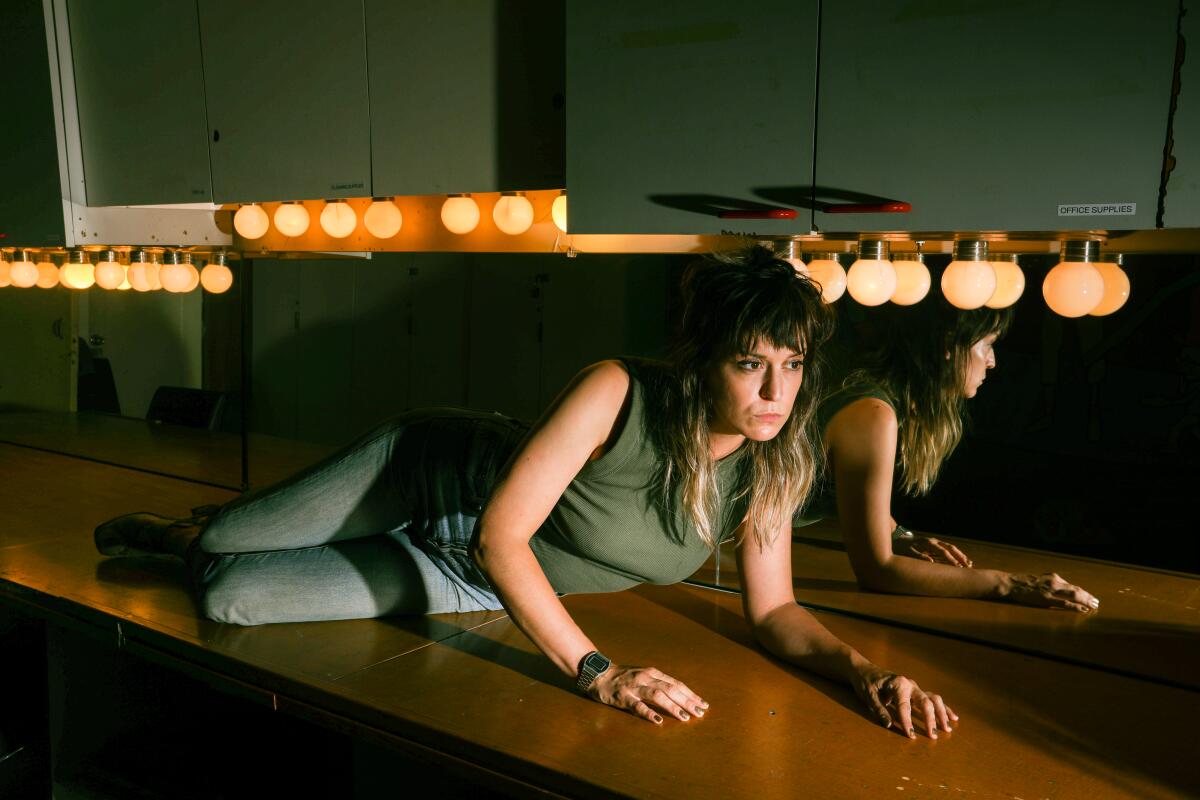
What are the biggest changes you’ve seen within the industry since you started out?
Von Schonfeldt: I mean, the internet, smartphones. I came up in the ‘90s when clubs were one of maybe two or three platforms comedians had to grow their audience. We found comics on “The Tonight Show,” HBO’s “Young Comedians” specials. More often than not, comedians had to rely on their agents and managers to break them into clubs. Then came the exposure from Comedy Central, then came Netflix, now we find them on YouTube and TikTok. There are just so many more platforms for comedians to get their content out now than when I started and many of those platforms don’t have gatekeepers, so you’re hearing so many new and different voices.
Varela: When I first started, Twitter was a new app that I decided to use in place of an email list. Now jobs are being given and lost based on follower counts, engagement, views and many other uncontrollable metrics that are not fully reflective of someone’s talent as a comedian. Performers now have to decide how much energy to invest just in running successful social media accounts on top of the energy put into improving their craft.
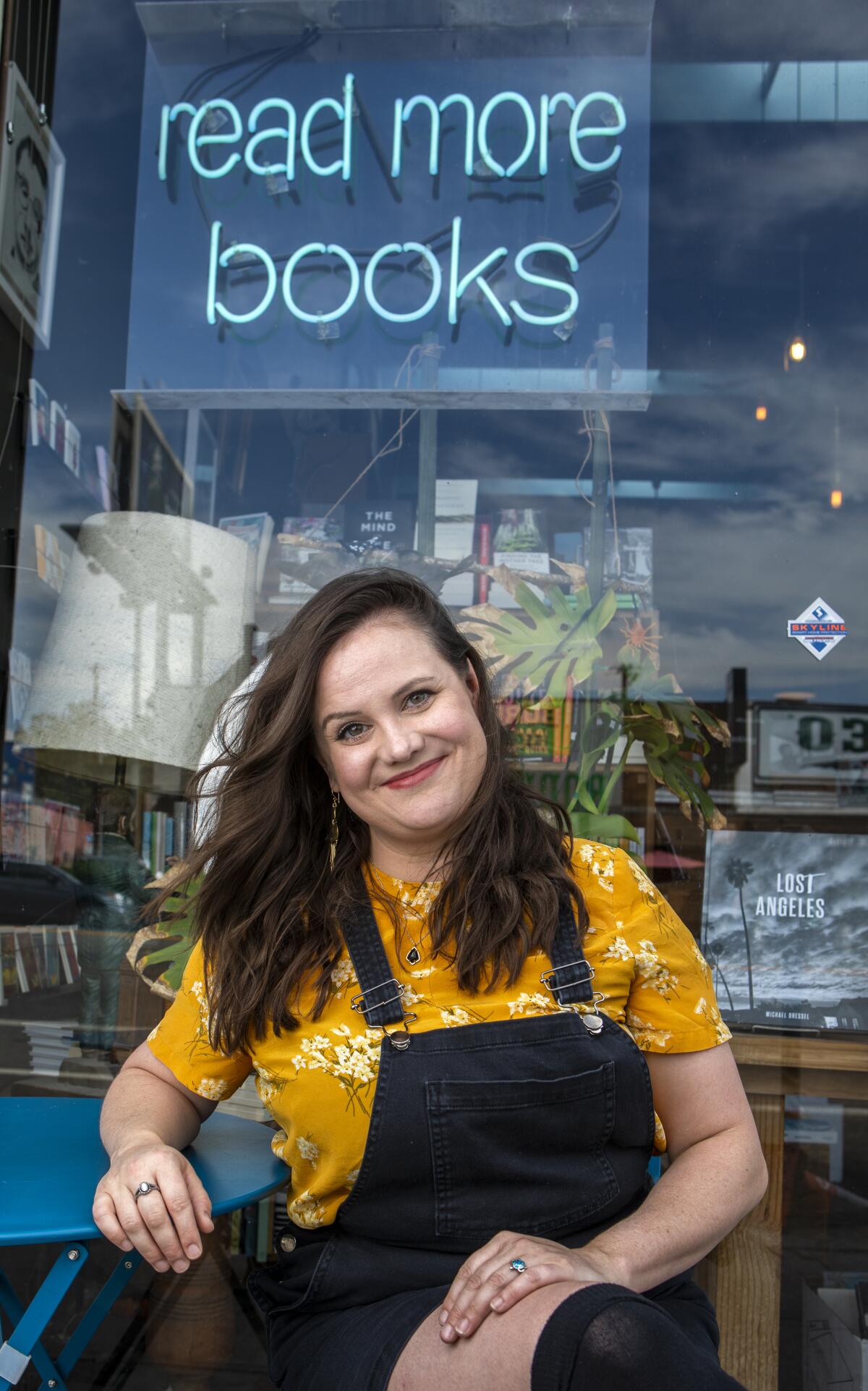
Swope: I have seen most bookers make a concerted effort to diversify talent. The terrain has changed now that social media functions as an international “stage,” creating a new avenue for talent outside of the major cities. However, comedy geared towards the algorithm doesn’t always translate to the stand-up stage, regardless of how many followers someone has. Changes to the overall media landscape, especially the advent of streaming and podcasting, have also opened up new inroads for fledgling comedians. Now comedians have the option to roll the dice on self-released specials.
Laford: I feel there is a stronger sense of community. Comics felt that they had to have a loyalty to a specific club or specific scene to get up. Now it feels like we are all in this together, that there are opportunities for everyone, everywhere. Industry-wise, it felt that there was this weird standard that you had to operate like “Entourage’s” Ari Gold to get stuff done. Yell. Belittle. Bully. Now everyone is way more chill. A lot more problem-solving together and less screaming to get stuff done.
Lapides: The comedy world — both the performers and the audiences — is thankfully more diverse. And more open to stories. And hipper, meaning more in the now. Higher consciousness. When I created UnCabaret, it was because there were no shows that were un-homophobic, un-xenophobic, un-misogynistic. We made a show “for us” so comedians could stretch out way past their tight 10sand showcase sets. For the worse, the unsafety of public venues in general. The prevalence of recording devices. Back in the day, people would share at the level of “It’s never leaving this room.” That’s hard to get now.
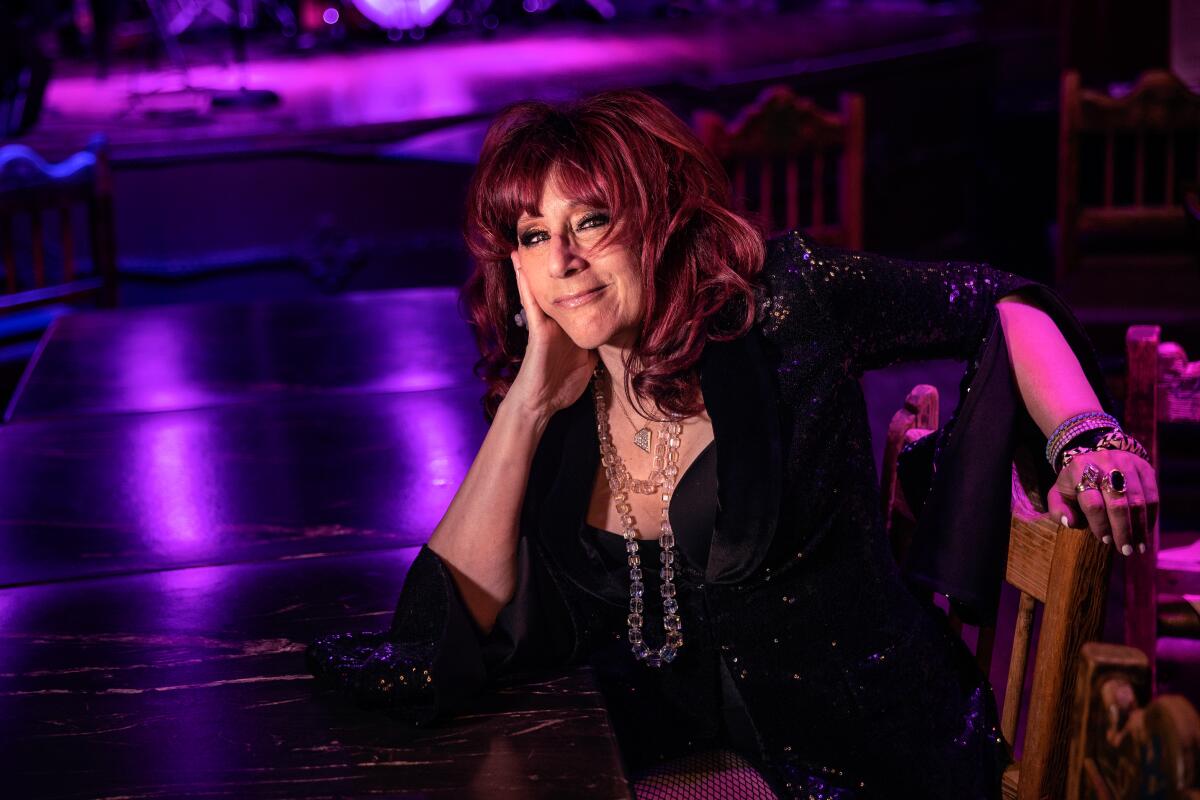
Ragland: How constantly it is changing and evolving, getting weirder and truer in all the best ways. In addition to all the great homegrown talent, we’ve also got tons of comics moving to L.A. from other cities, so we are often on the receiving end of a performer who has put in tons of work who lands here ready to take off. That energy keeps so many new voices coming and new styles emerging.
Cheer up at one of these spots for stand-up comedy in L.A.
Murdock: Stand-up comedy has become a lot more sophisticated since I started in 2001. Comedians along with the audience are now more educated and worldly. Anyone can laugh at the simple jokes, but I do believe the audience is craving and expecting a higher grade of content/jokes/material.
Summers: Cancel culture is playing a big part. I’m trying my best to speak my mind and push boundaries, but hearing that censor voice in my head makes it a challenge.
Blaine: Doing comedy through the #MeToo era. We are finally talking about important standards that comics and comedy clubs need to uphold to keep the workplace safe for all … I’d like to think that a woman starting out today will have an easier time finding stage time and other comics that will help support them. It’s one of the reasons I opened up my own club, specifically to create a safe space for comics who don’t feel like they fit into the historic mold of a stand-up comic.
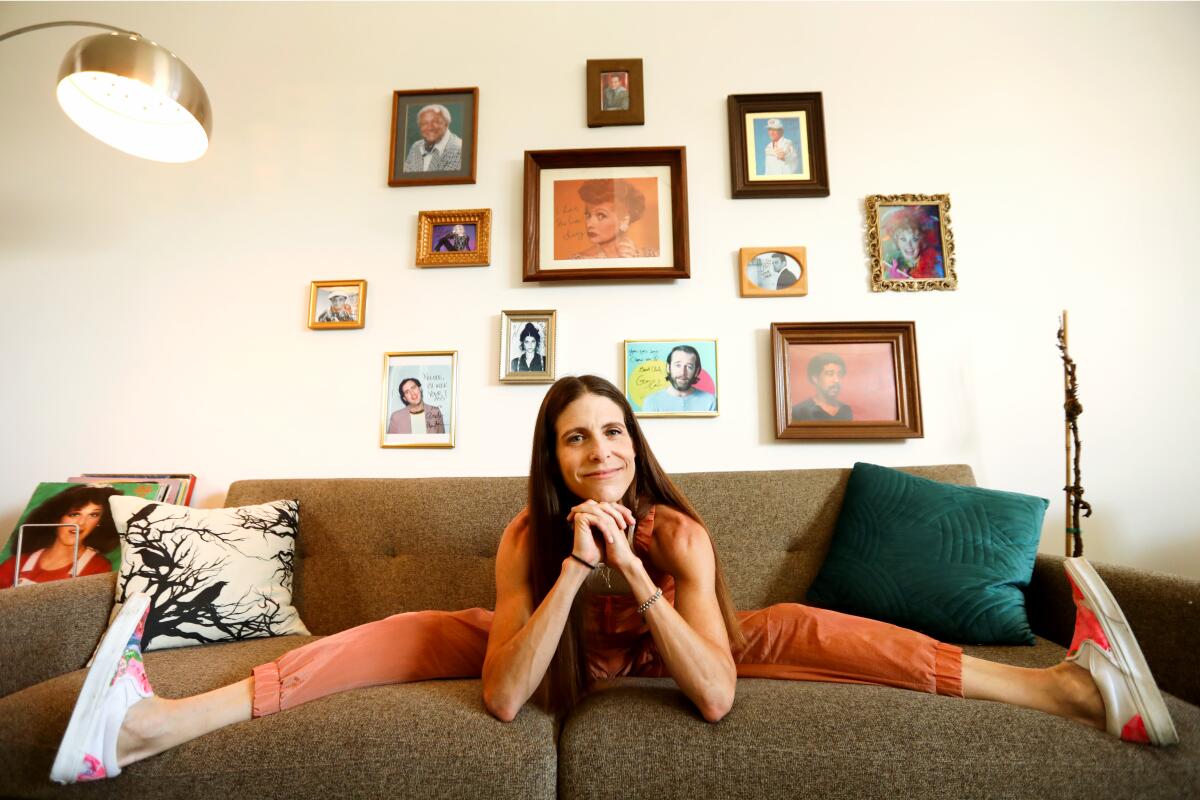
Do female bookers/producers evaluate comedians in a different way than male counterparts?
Von Schonfeldt: Funny is funny. Comedy will always be subjective, but if you have found yourself in the position of being a booker regardless of your sex, you’ve proven yourself to have an eye for talent. In delivering that evaluation, yes. The comedy business is hard. Comedians don’t choose it lightly. There is a fire inside of them that drives them, and I think there’s a sensitivity that is essential when you are dealing with that level of passion. In my experience women have more of that sensitivity, are infinitely more patient and have less of the ego.
Banford: I’ve heard [stories about a male booker] who wouldn’t book a woman if she was wearing boots and a skirt. But I don’t think that’s a gender difference, that’s more of a cause of him giving in to some sexism. I also care a lot about not booking s— people who make people feel bad around them. But again, I don’t think that’s a gender thing. I think it’s just generally the more ethical way to book shows.
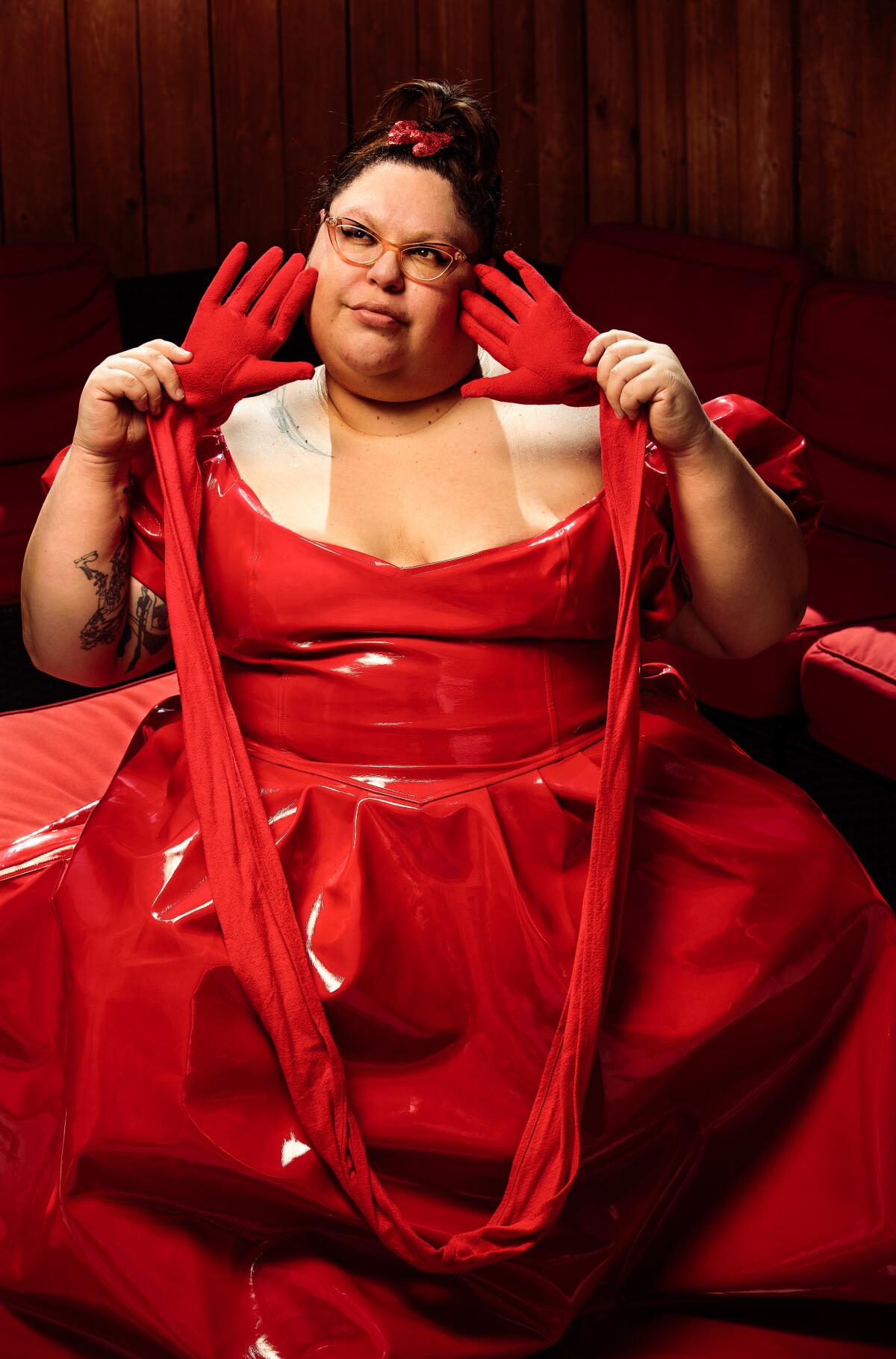
Varela: I personally love to hear from voices that have not been present in mainstream media, such as LGBTQIA+, people of color and disabled performers. But I would not say my taste in comedy is defined by me being raised and perceived as female, rather it comes from my personal life experiences and past traumas. How much of my life experiences were informed by being female-presenting is incalculable, but I can generalize to say that women in this industry are more aware of pay and opportunity discrepancies between men and women, with women of color like myself being more aware of pay/opportunity discrepancies between white men and women and POC men and women.
Ragland: We’re fortunate to have a great, progressive audience whose appetite really matches what we love to put together, which is programming that is truly unique. People with particular stories to tell who are also, you know … funny. This criteria as a jumping-off place naturally leads to a wildly diverse group of people. If a lineup or programming lacks diversity, it’s certainly due to the person doing the pickin’, not the actual options that are available. Gross dudes and biased bookers surely still exist out there, but I don’t think they’re really traveling in our circles thankfully.
Summers: Female bookers generally have more understanding of how unfair the industry is to female comics. I’m so tired of hearing “Women aren’t funny.” We are funny, but we do not have the same opportunities as our male counterparts. We don’t get the same amount of stage time, which is one of the reasons I opened the Hollywood Comedy, to provide stage time for everyone.
Murdock: It takes a lot to make a woman laugh, so I believe our choice of comic and their content/jokes is well-rounded, thoughtful and intentional. We tend to seek out funny women for our rosters and maybe by virtue of being able to see ourselves in comics, are more open to booking funny women. Women tend to laugh more freely and are always open to hearing something fresh, which I believe helps to bring a necessary balance and much-needed perspective to the scene. Women appreciate a top-quality joke versus something offensive.
The biggest entertainment stories
Get our big stories about Hollywood, film, television, music, arts, culture and more right in your inbox as soon as they publish.
You may occasionally receive promotional content from the Los Angeles Times.